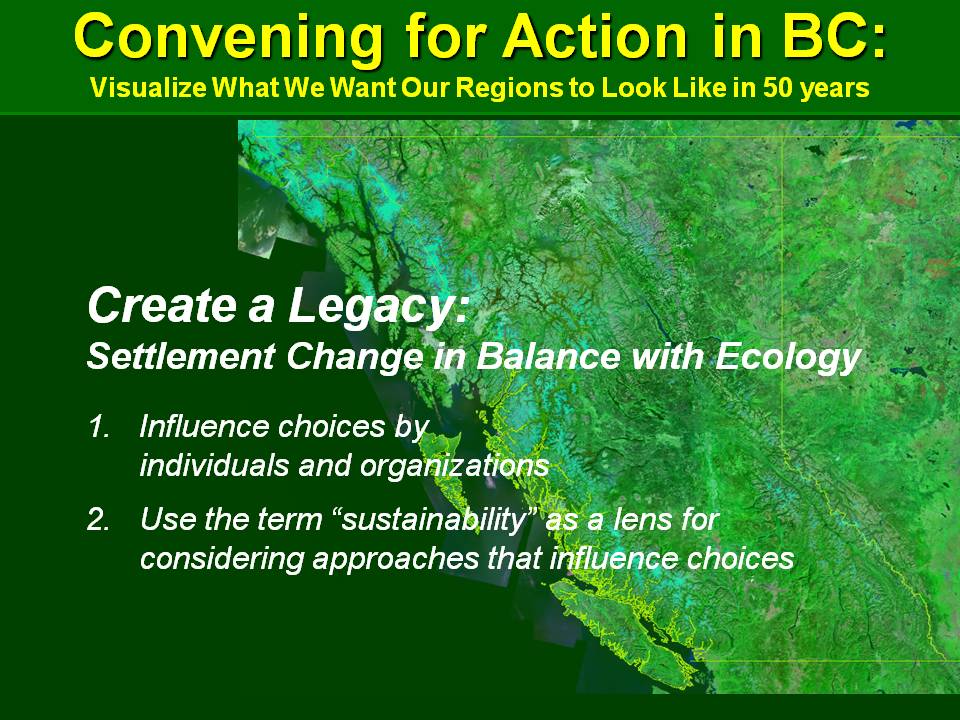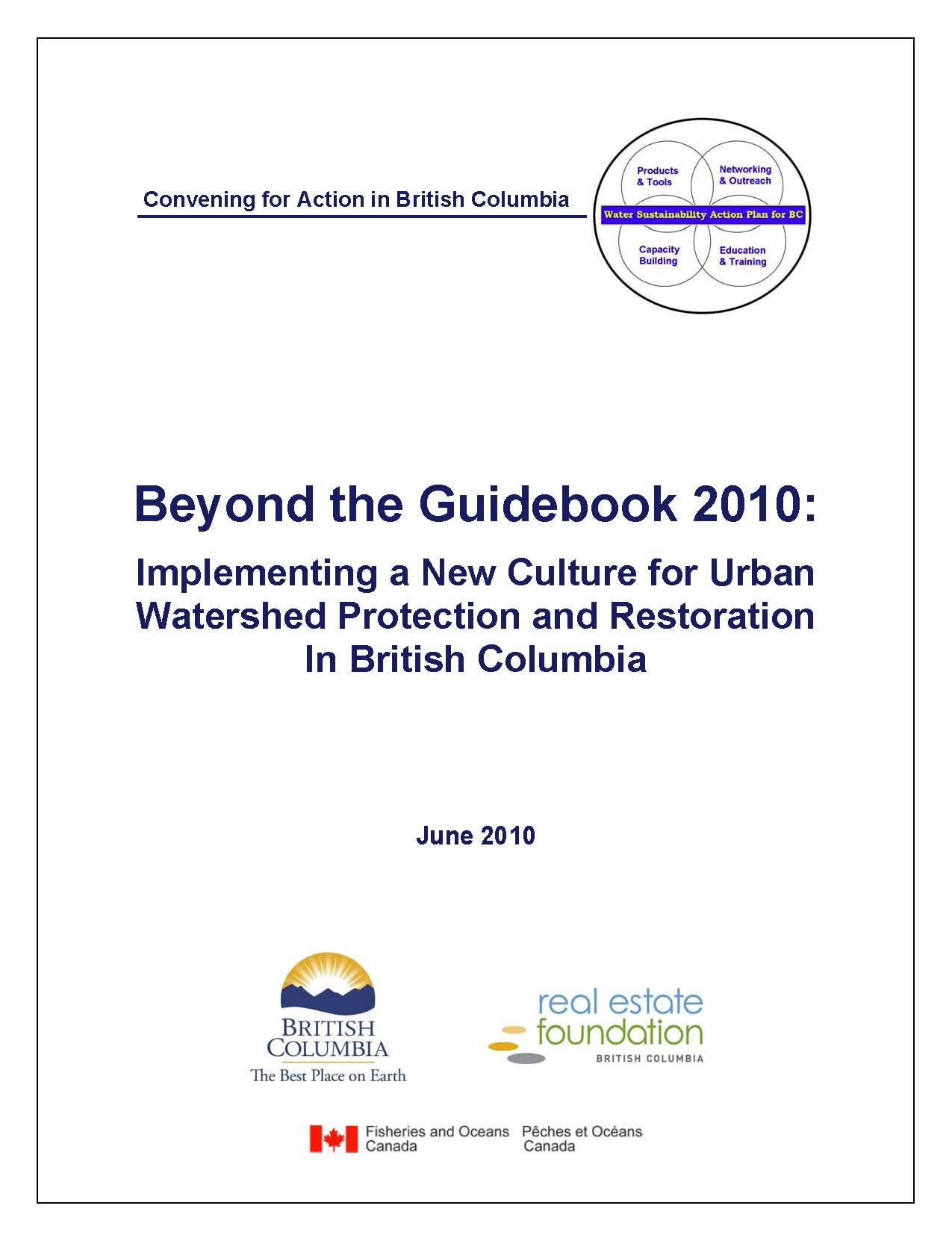Beyond the Guidebook 2010: Leading Change in British Columbia
Note to Readers:
During the November-December 2010 period, the Water Sustainability Action Plan for British Columbia released a series of five articles that are designed to inform local governments and others about a ‘course correction’ for Integrated Stormwater Management Plans (ISMPs). The series describes:
- what ISMPs are;
- how local governments can do more with less; and
- how local governments can ensure ISMPs are outcome-oriented.
The series is extracted from Beyond the Guidebook 2010: Implementing a New Culture for Watershed Protection and Restoration in British Columbia, released in June.
Adaptive Management
 “Released in 2002, Stormwater Planning: A Guidebook for British Columbia is a pioneer application in North America of ‘adaptive management’ in a rainwater management setting. In fact, this is one of the five guiding principles for ISMPs. In the Guidebook, adaptive management means: We change direction when the science leads us to a better way,” stated Kim Stephens, Action Plan Program Coordinator.
“Released in 2002, Stormwater Planning: A Guidebook for British Columbia is a pioneer application in North America of ‘adaptive management’ in a rainwater management setting. In fact, this is one of the five guiding principles for ISMPs. In the Guidebook, adaptive management means: We change direction when the science leads us to a better way,” stated Kim Stephens, Action Plan Program Coordinator.
Leading Change in British Columbia
“After a decade of ‘learning by doing’, it is timely in 2010 to reflect on the experience of those local governments that are leading change in British Columbia,” continues Kim Stephens. “To that end, themes for stories in the ‘ISMP Course Correction Series’ are listed as follows:
- Re-Focus on Stream Health and Watershed Outcomes
- Capitalize On Green Infrastructure Opportunities to ‘Design with Nature’
- Apply a Knowledge-Based Approach to Focus on Solutions and Outcomes
- Move to a Levels-of-Protection Approach to Sustainable Service Delivery
- Apply Inexpensive Screening Tools to ‘Do More With Less’ ”
“The case study experience introduced in Beyond the Guidebook 2010 shows that a new land ethic is taking root in BC. Changing the culture requires a process. This takes time to complete. There is no short-cut; however, lessons learned by those who have done it can help those who want to do it.”
Rainwater Management is Landscape-Based
“Beyond the Guidebook 2010 states that the time has now come to make the change to ‘IRMP’ from ‘ISMP’ to reflect the paradigm-shift to landscape-based ‘RAINwater’ from pipe-and-convey ‘stormwater’,” emphasizes Kim Stephens.
“A holistic IRMP is a potentially powerful tool to achieve a vision for ‘green’ infrastructure, one that protects stream health and fish habitat, and also anticipates climate change.”
To Learn More:
To access stories in the ‘ISMP Course Correction Series’, click on Water Bucket publishes excerpts from “Beyond the Guidebook 2010” about why and how to re-focus ISMPs on outcomes — Outcome-oriented planning is a problem-solving PROCESS. It is not a procedure. It is not a matter of applying a regulation or a checklist. Participants have to be committed to the outcome.
Posted November 2010



